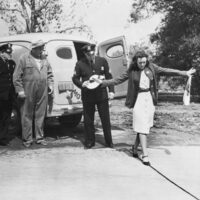Little-Known Details About Field Sobriety Tests

In Texas, field sobriety tests (FSTs) are often administered during traffic stops to assess a driver’s level of impairment. When it comes to DWI cases, the nuances of FSTs can be helpful for drivers to know about and are crucial knowledge for Houston DWI lawyers. Understanding how field sobriety tests are used along with being aware of the possibility of their results being fallible is part of building a solid defense.
Common FSTs in Texas
Sobriety tests you may encounter if you are pulled over by law enforcement because you are suspected of drunk driving include the following.
- Horizontal gaze nystagmus. This test measures involuntary eye movements associated with intoxication. Officers observe the eyes of a pulled over driver as they track a moving object, but this test can be influenced by factors such as medical conditions or prescription drugs.
- Walk-and-turn test. During the walk-and-turn test, individuals walk heel-to-toe along a straight line, but what’s often overlooked is that challenging weather conditions, uneven surfaces, or physical impairments can affect a person’s ability to perform well.
- One-leg stand. In the one-leg stand test, a person is asked to balance on one foot while counting aloud. Not widely known is that certain medical conditions, age, or physical limitations can impact the ability to perform this test, leading to potential false positives.
- Finger-to-nose test. Touching the tip of the nose with the tip of the finger can be difficult for a person with coordination difficulties or medical conditions. Even a person being nervous can affect performance, leading to an inaccurate assessment.
- Alphabet or number counting. Reciting the alphabet or counting numbers backward is a cognitive test, but stress, anxiety, or language barriers may hinder a person’s ability, resulting in an inaccurate evaluation of sobriety.
According to the National Highway Traffic Safety Administration, FSTs have varying levels of accuracy. For instance, the HGN is reported to have an accuracy rate of around 77%, while the walk-and-turn and one-leg stand tests have accuracies of between 60-70%. In short, there is the potential for errors and false positives during a drunk driving traffic stop.
Paths to Challenging Results
Several challenge options exist when it comes to field sobriety tests. For example, FSTs rely heavily on an officer’s subjective interpretation of a person’s performance. Factors such as the officer’s training, experience, and personal biases can impact the assessment. It is also possible that environmental conditions, physical impairments, or medical issues significantly affected a person’s ability to perform one or more of the tests, leading to potential misinterpretations.
There are also times when it is appropriate for a Houston DWI lawyer to scrutinize the procedures followed by law enforcement during FST administration. If officers did not adhere to proper protocols or improperly interpreted test findings, the results can be called into question.
Has a sobriety test result complicated your situation? If you were arrested and a false positive is being used by prosecutors as proof, connect with the legal team at Ayson Law Firm. Skilled attorneys are available to fight for your rights. Contact us today for a free consultation.
